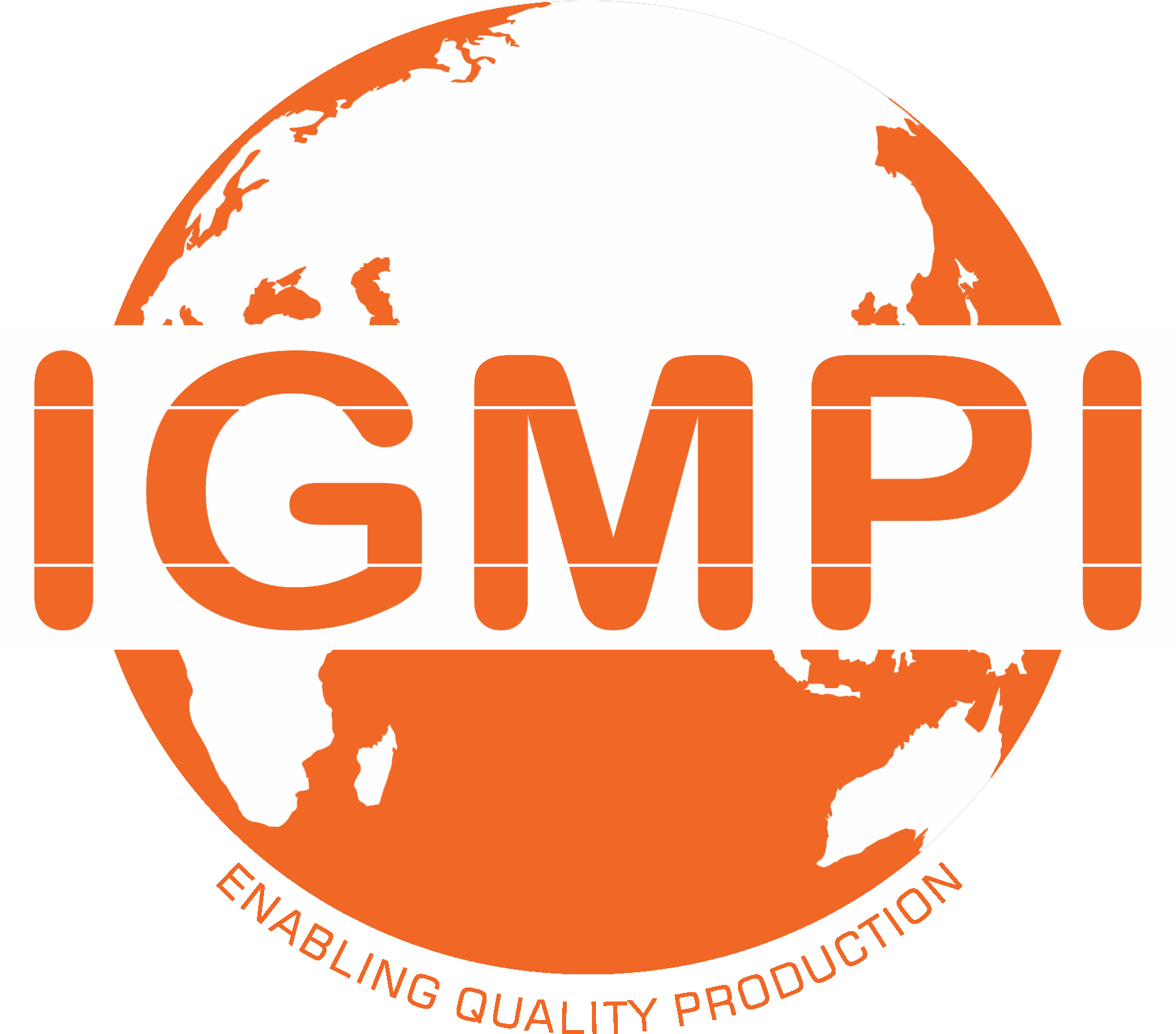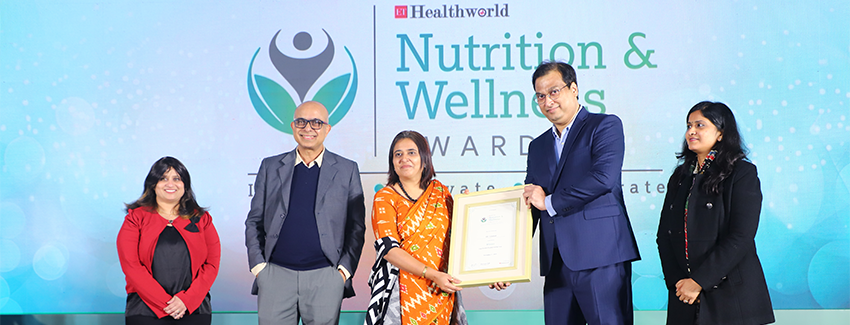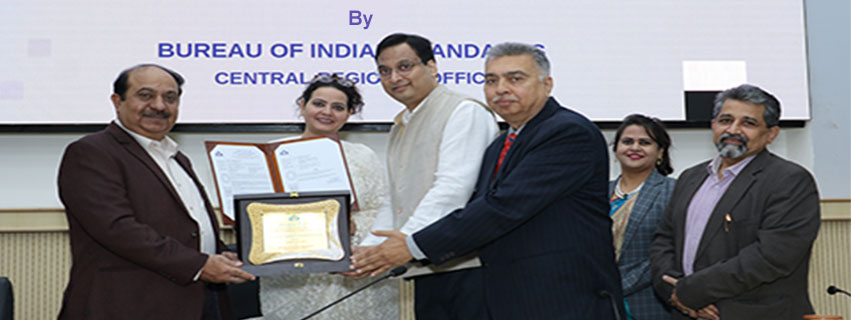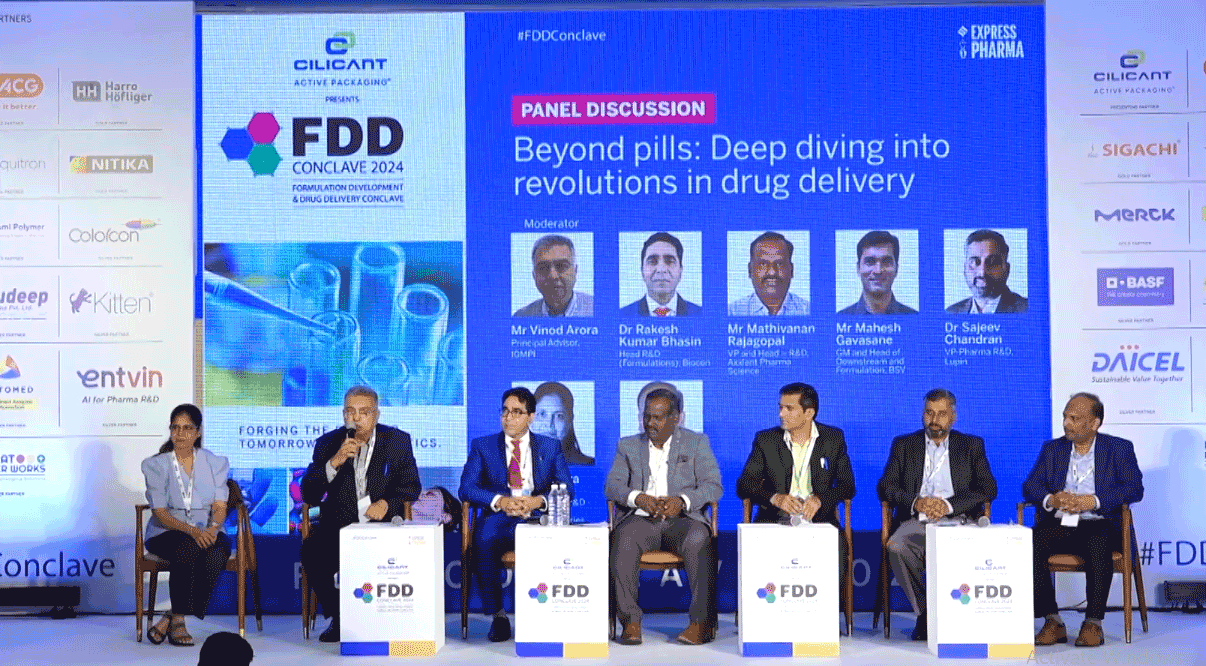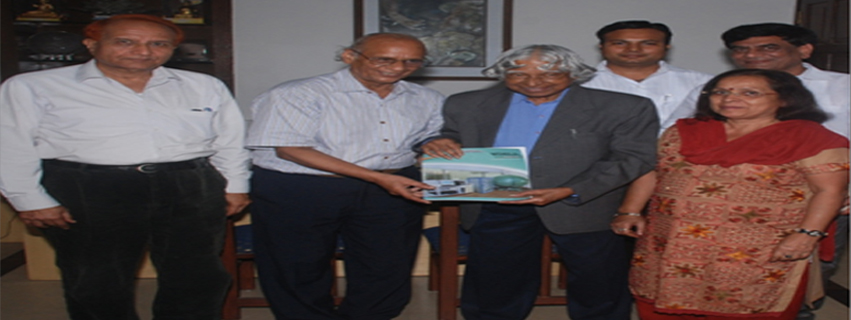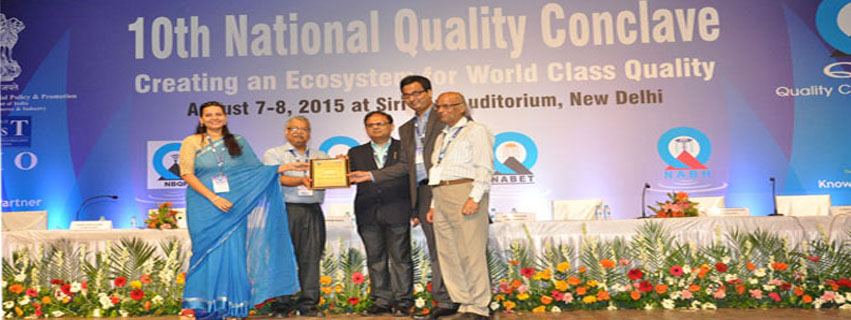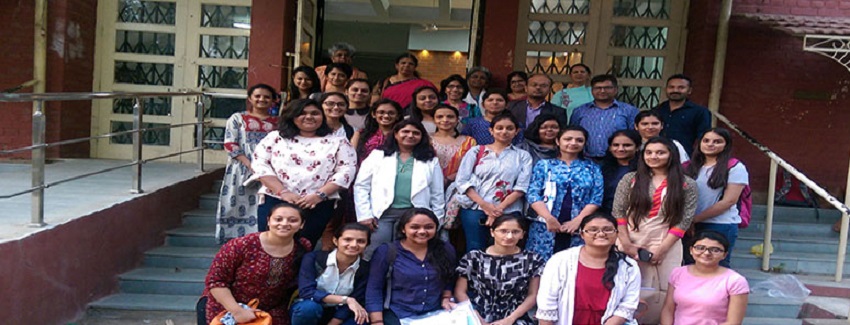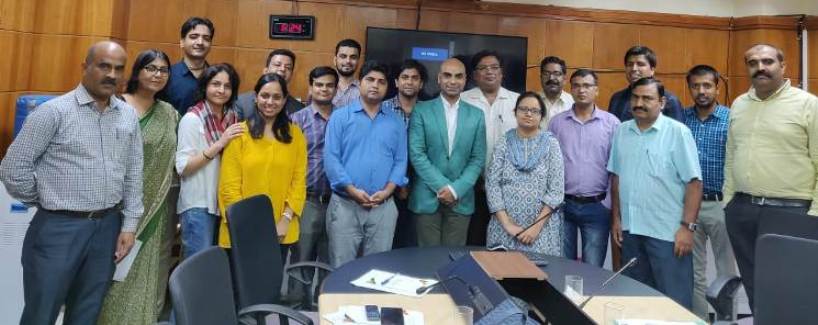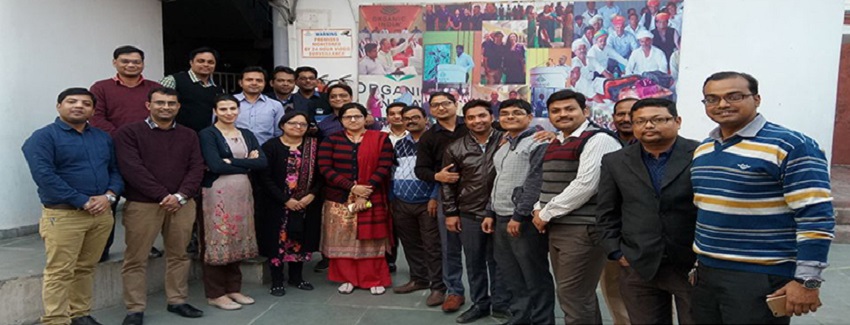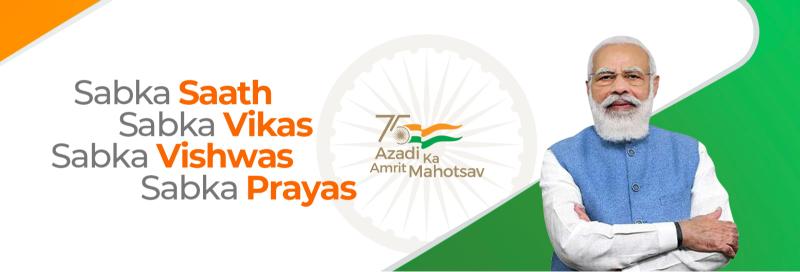(An Autonomous Body Recognized by Ministry of Commerce & Industry, Government of India)
Competency based placement focussed Education | Training | Research | Consultancy
Post Graduate Diploma/ Executive Diploma in Educational Psychology (PGDEP/EDEP)
The PG Diploma/Executive Diploma in Educational Psychology is a dynamic and interdisciplinary program designed to equip educators, counsellors, and professionals with the psychological expertise required to understand and support the diverse learning and developmental needs of children and adolescents. Rooted in evidence-based theory and enriched with real-world application learning, this program emphasizes the psychological foundations of teaching, learning, assessment, and student well-being in both traditional and modern educational settings.
Participants will explore the cognitive, emotional, and social development, understand diverse learning needs, and apply inclusive and culturally responsive practices. The course also highlights the importance of assessment, mental health, digital-age learning, and the critical role of parents and teachers in shaping learner outcomes. With a balanced focus on theoretical depth and practical intervention, students will be prepared to address classroom challenges, promote learner engagement, and contribute meaningfully to holistic educational environments.
Programme Overview:
This program provides an in-depth understanding of educational psychology, focusing on how students learn, develop, and thrive across varied learning contexts. It spans a wide range of essential topics—from foundational theories of learning and development to the application of psychological principles in inclusive classrooms, assessment, and digital learning environments. Learners will critically engage with key psychological concepts such as cognitive and metacognitive processes, behaviour and motivation, personality and attitude development, and the design of effective learning environments. Special emphasis is placed on understanding students with special educational needs, supporting teacher and student mental health, and fostering strong parent-school partnerships. Through interactive modules, case studies, and field-relevant insights, participants will gain skills to conduct psychological assessments, create inclusive instructional strategies, support emotional well-being, and address challenges arising in today’s diverse and technologically driven classrooms. The curriculum also addresses ethical standards, cultural sensitivity, and data-informed decision-making in educational psychology, ensuring that graduates are not only equipped to support individual learners but also to contribute to systemic improvements in educational practice and policy.
Programme Structure
International Affiliation with
Programme Structure
International Affiliation with
Module 1: Introduction to Psychology
- Definition and Importance of Psychology
- Branches and Scope of psychology
- Early Philosophical Influences on Psychology
- Roles and Responsibilities
Module 2: Foundation of Educational Psychology
- Definition, scope, and goals of educational psychology
- Historical development and major schools of thought
- Relevance to modern teaching and learning
Module 3: Understanding Student Development and learning Theories
- Major developmental theories: Piaget, Vygotsky, Erikson, Kohlberg
- Physical, cognitive, social, and emotional development in learners
- Developmental milestones and implications for instruction
- Learning Theories: Behaviorist, cognitive, constructivist
Module 4: Special Educational Needs and Inclusive Practices
- Overview of disabilities and neurodevelopmental disorders
- Educational Strategies for Inclusive Classrooms
- Understanding Special Needs and Giftedness
- Social Integration and Peer Relationships
- Supporting Families of Special Needs and Gifted Children
- Community Resources and Support Networks
Module 5: Cognitive and Metacognitive Processes
- Attention, memory and executive functioning
- Teaching higher-order thinking skills (analysis, synthesis, evaluation)
- Encouraging creativity and problem-solving
- Theories of intelligence: Spearman, Gardner, Sternberg
- The impact of digital technology on attention, memory, and cognition
Module 6: Teaching, Communication, and the Learning Environment
- Effective classroom management strategies
- Cultural, linguistic, socioeconomic, and gender diversity in classrooms
- Verbal and non-verbal communication in education
- Student Motivation and Engagement (Theories of Motivation)
- Designing inclusive and stimulating learning environments
- Training Teachers in Psychological Strategies for the Classroom
Module 7: Educational Psychology in Practice
- Role of Educational Psychologist in Schools
- Types of Counselling Approaches in Schools
- Mental Health and Well Being in Educational settings
- Ethical and Cultural Considerations
Module 8: Attitude and Personality in Educational Psychology
- Understanding Attitudes and Their Influence on Learning
- Theories and Models of Personality
- Teacher and Student Personality Interactions
- Attitude and Personality Assessment in Education
Module 9: Empowering Parents Through Educational Psychology
- Creating a Learning-Friendly Home Environment
- Fostering Emotional Intelligence and Mental Wellbeing
- Supporting Motivation, Growth Mindset, and Executive Skills
- Parenting in the Digital Age
Module 10: Educational Assessment
- Principles of Educational Assessment
- Psychological and Learning Assessments
- Assessment for Social-Emotional Learning (SEL)
- Data-Informed Instruction and Intervention
- Feedback as a Learning Tool
Module 11: Case Study
Module 12: Capstone Project
Eligibility
Graduates in any discipline are eligible for our Post Graduate Diploma, Executive Diploma and Professional Certification Programmes.
Programme Duration
The minimum duration to complete the PG diploma programme is 12 months and maximum is 24 months. The minimum duration to complete the executive diploma programme is 6 months and maximum is 12 months.
Programme Mode
Registrations are currently open for regular and Part-time (Online Live Classes) both modes.
Programme Deliverables
A comprehensive study material for all the modules in hard copies ensuring the needs of the audience. The accompanying training material is appropriately aligned with the current Industry’s expectations.
- Assignments for all the programme modules for continuous evaluation and guidance.
- Interactive or online live sessions on all key areas of the programme giving all flexibility to the participants.
- Online Live Classes/Part-time for all the modules will be conducted on the weekends. Moreover, a doubt clearing session will also be scheduled before the examination
- All the efforts are made by IGMPI faculty members to make the entire programme modules easily understandable.
- Assessment and evaluation for all the programme modules in order to enhance the levels of competencies and skills of the participants leading towards the objective of application in the job.
- At the end of each programme modules, the trainers shall obtain feedback from the participants using specially designed questionnaires.
- All learning and training delivery initiatives shall be conducted in English.
Examination and Certification
All the participants are expected to appear for an online exam and are also obliged to submit assignments after each module. After successful completion, the participants will be awarded Post Graduate Diploma/Executive Diploma in Educational Psychology by Centre for Health Management and Research, IGMPI. For all the above-mentioned modules, Online Classes (Online mode) or face-to-face classes (Regular mode), elaborate programme material, self-assessment assignments would be provided by the Institute. Details get updated on the webpage as well.
Discipline in Classes and Examination
Every student is required to observe a disciplined behaviour during her/his classes, assessments & examinations and to follow instructions from the Professors. Any act of indiscipline may result into discredit & it will be mentioned in her/his academic report.
Placement Assistance & Corporate Relations
The Institute has partnered with many organizations for providing with placement assistance to its participants. Besides, it has a robust placement cell comprised of senior level Human Resources professionals and Talent Acquisition experts which maintains close links with business and industry. This cell is continuously engaged in promoting the employability of our participants and encouraging the concerned Human Resources department and Hiring Managers to recruit/hire our participants for their vacant positions. The efforts of our placement cell also include helping with professional resume writing & interview skills.
In recent months the Institute has witnessed more and more participation from professionals working with global healthcare giants like Healthcare Settings (Apollo, Max Healthcare, Fortis etc.), Corporate Wellness Centres (Amaha, Mantra Care, Nirawellness etc.), Health Coaching and Consultancy (The Health Science Academy, Aanya Wellness, Shreehi Consulting Services LLP etc.), Education and Training, NGO’s (Mindroot Foundation, The MIND foundation etc.), and Private Practices etc.
Future career prospects
As the field of educational psychology continues to evolve, the PG Diploma/Executive Diploma in Educational Psychology integrates emerging research in learning sciences, developmental psychology, and digital innovation to stay at the forefront of educational transformation. Future iterations of the program may adopt a more interdisciplinary framework, drawing from neuroscience, data analytics, and educational technology to better understand and support the cognitive, emotional, and social needs of learners in diverse settings.
Special emphasis will be placed on the impact of digital environments, social media, and screen exposure on attention, motivation, and well-being. Advancements in technology-driven assessments, telepsychology, and personalized learning platforms will shape how psychologists and educators assess, engage, and intervene with students—both in-person and remotely.
The curriculum will continue to expand its focus on inclusive education, neurodiversity, and support for both special needs and gifted learners, ensuring graduates are well-equipped to foster equitable and enriching learning environments. Additionally, the integration of trauma-informed approaches, cross-cultural competencies, and resilience-building strategies will prepare future professionals to address the complex challenges faced by students, families, and schools in a rapidly changing global society.
Programme Fee Details
Programme fee details will appear here.
Last date for submitting completed Application Form: 26th Feb 2026.
For further enquiries, call or write to us on:
18001031071
(Toll Free -9:00 am to 5:30 pm IST-except on Central Government holidays)/
info@igmpi.ac.in
NEWSLETTER
- Technology Integration Transforms Medical Transportation for Chronic Care in India
- Xortx Underscores Genetic Evidence for Xanthine Oxidase Targeting and Announces Board Update
- Technology-Driven Innovations Reshape India’s Eye Care Ecosystem
- 2026 Emerges as Turning Point for Non-Invasive Drug Delivery in Pharma and MedTech
Other Programmes
- Addiction Psychology (PGDAP/EDAP)
- Adolescent Health and Counselling (PGDAHC/EDAHC)
- Ayurveda Practices (PGDAP/EDAP/DAP)
- Ayurvedic Cosmetology (PGDAC/EDAC)
- Ayurvedic Gastroenterology (PGDAG)
- Child Psychology (PGDCP/EDCP)
- Clinical Cosmetology (PGDCC/EDCC)
- Clinical Epidemiology (PGDCE/EDCE)
- Clinical Psychology (PGDCP/EDCP)
- Cognitive Behavioural Therapy (PGDCBT/EDCBT)
- Counselling & Family Therapy (PGDCFT/EDCFT)
- Counselling Psychology (PCP/ECP)
- Cultural Psychology & Psychiatry (PGDCPP/EDCPP)
- Digital Health (PGDDH/EDDH)
- Epidemiology and Biostatistics (PGDEB/EDEB)
- Facial Aesthetics (PGDFA/EDFA)
- Forensic Psychology (PGDFP/EDFP)
- Health and Sanitation (PGDHSI/DHSI)
- Health and Wellness Psychology (PGDHWP/EDHWP)
- Health Economics (PGDHE/EDHE)
- Health Informatics (PGDHI/EDHI)
- Health Information Management (PGDHIM/EDHIM)
- Health Inspector (DHI)
- Health Insurance Management (PGDHIM/EDHIM)
- Healthcare Analytics (PGDHA/EDHA)
- Healthcare Marketing (PGDHM/EDHM)
- Healthcare Quality Management (PGDHQM/EDHQM)
- Herbal Medicine (PGDHM/EDHM)
- Hospital and Healthcare Management (PGDHHM/EDHHM)
- Industrial/Organisational Psychology (PGDIOP/EDIOP)
- Integrative Medicine (PGDIM)
- Kaya Chikitsa (PGDKC/EDKC)
- Marriage and Family Education (PGDMFE/EDMFE)
- Maternal and Child Health (PGDMHC/EDMHC)
- Medical Coding (PGDMC/EDMC)
- Medical Records Technology (PGMRT/EDMRT)
- Mental Health and Psychotherapy (PGDMHP/EDMHP)
- Mind-Body and Lifestyle Sciences (PGDMBLS/EDMBLS)
- Naturopathy (PGDN)
- Naturopathy and Yogic Science (PGDNYS/EDNYS/DNYS)
- Neuropsychology (PGDNP/EDNP)
- Nursing Administration (PGDNA/EDNA)
- Psychosocial Rehabilitation (PGDPR/EDPR)
- Public Health (Epidemiology as Major) (PGDPHE/EDPHE)
- Public Health and Hospital Management (PGDPHHM/EDPHHM)
- Sanitary Inspector (DSI)
- Telehealth (PGDTH/EDTH)
- Yoga Therapies (PGDYT/EDYT)
